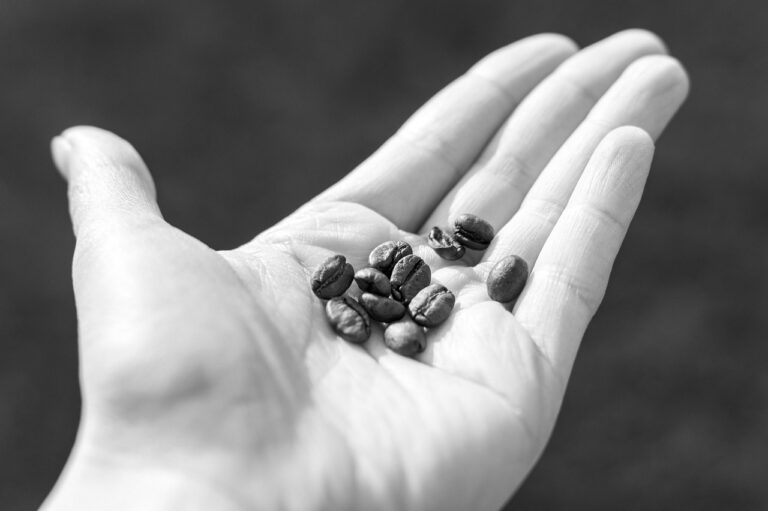The Role of Genetics in Fitness: Understanding Your Unique Potential
skyexch win, world777 com id, goldbet7 com:The Role of Genetics in Fitness: Understanding Your Unique Potential
Have you ever wondered why some people seem to effortlessly excel in sports and fitness, while others struggle to keep up? The answer may lie in your genetic makeup. Genetics play a significant role in determining our physical attributes, including our fitness levels. Understanding your unique genetic potential can help you tailor your fitness routine to achieve optimal results.
Genetics and Fitness: The Basics
Our genetic code, inherited from our parents, determines many aspects of our physicality. This includes traits such as muscle fiber composition, metabolism, and response to exercise. These genetic factors can influence how easily we gain muscle mass, how quickly we burn calories, and even how we recover from workouts. While genetics are not the sole determinants of fitness, they play a crucial role in shaping our physical abilities.
Muscle Fiber Composition
One of the key ways genetics influence fitness is through muscle fiber composition. There are two main types of muscle fibers: slow-twitch and fast-twitch. Slow-twitch fibers are better suited for endurance activities, while fast-twitch fibers are geared towards power and strength. The proportion of these muscle fibers in your body is largely determined by genetics.
For example, individuals with a higher percentage of fast-twitch fibers may find it easier to build muscle mass and excel in activities that require explosive power, such as sprinting or weightlifting. On the other hand, those with a higher proportion of slow-twitch fibers may have an advantage in endurance sports like long-distance running or cycling. Understanding your muscle fiber composition can help you tailor your training program to maximize your strengths.
Metabolism
Another crucial aspect of genetics in fitness is metabolism. Metabolism refers to the process by which your body converts food into energy. Some people are blessed with a naturally fast metabolism, allowing them to burn calories more efficiently and maintain a lean physique. Others may have a slower metabolism, making it easier for them to gain weight.
While genetics play a role in determining your baseline metabolism, lifestyle factors such as diet and exercise can also influence your metabolic rate. By understanding your genetic predispositions, you can make informed choices about the types of food you eat and the intensity of your workouts to support your fitness goals.
Response to Exercise
Genetics can also impact how your body responds to exercise. Some individuals may see rapid improvements in strength and endurance with minimal training, while others may struggle to make progress despite consistent effort. This differential response to exercise is partly influenced by genetic factors such as muscle growth potential and recovery abilities.
By knowing how your body responds to exercise, you can adjust your workout routine to optimize your results. For example, if you have a high muscle growth potential, you may benefit from incorporating more resistance training into your program. On the other hand, if you have slower recovery abilities, you may need to prioritize rest and recovery to avoid burnout.
Tailoring Your Fitness Routine
Understanding the role of genetics in fitness can help you tailor your workout routine to suit your unique needs. By leveraging your genetic strengths and addressing your weaknesses, you can optimize your training program for maximum results. Here are some tips for incorporating genetics into your fitness journey:
1. Get a DNA Test
One of the most effective ways to uncover your genetic predispositions is through a DNA test. Companies like 23andMe and AncestryDNA offer genetic testing kits that can provide insights into your muscle fiber composition, metabolism, and response to exercise. By analyzing your genetic data, you can gain a better understanding of your unique fitness potential.
2. Consult a Genetic Counselor
If you have specific concerns about your genetic predispositions or family history, consider consulting a genetic counselor. These healthcare professionals specialize in interpreting genetic information and can offer personalized recommendations for optimizing your fitness routine. A genetic counselor can help you understand how your genetic makeup may impact your fitness goals and provide guidance on how to work with your genetics, not against them.
3. Experiment with Different Training Approaches
Once you have a better understanding of your genetic profile, experiment with different training approaches to see what works best for your body. Pay attention to how your body responds to different types of exercise, intensity levels, and recovery strategies. By listening to your body and adjusting your workout routine accordingly, you can optimize your fitness gains and prevent burnout.
4. Focus on Consistency and Patience
While genetics play a significant role in fitness, consistency and patience are key to achieving long-term results. Remember that progress takes time, and everyone’s fitness journey is unique. Focus on making small, sustainable changes to your lifestyle and training routine, and be patient with yourself as you work towards your goals.
Frequently Asked Questions
Q: Can I change my genetic predispositions through exercise and diet?
A: While you cannot change your genetic code, you can influence how your genes are expressed through lifestyle factors such as exercise and diet. By making healthy choices and adopting a consistent fitness routine, you can optimize your genetic potential for fitness.
Q: How do I know if genetics are holding me back from reaching my fitness goals?
A: If you’re struggling to make progress despite consistent effort, consider exploring your genetic predispositions through DNA testing or consulting a genetic counselor. By understanding how your genetics may be influencing your fitness journey, you can make informed decisions about how to tailor your training program for better results.
Q: Is it worth investing in a DNA test for fitness purposes?
A: While DNA testing can provide valuable insights into your genetic predispositions for fitness, it’s not necessary for everyone. If you’re curious about how your genetics may be influencing your physical abilities, a DNA test can offer personalized recommendations for optimizing your fitness routine.
In conclusion, genetics play a crucial role in determining our fitness potential. By understanding your genetic makeup and leveraging your strengths, you can tailor your fitness routine to achieve optimal results. Remember that everyone’s genetic profile is unique, so it’s essential to listen to your body and experiment with different approaches to find what works best for you. Embrace your genetic gifts and work towards your fitness goals with patience and consistency. Your genes may set the stage, but it’s your dedication and effort that will ultimately determine your success in the world of fitness.






